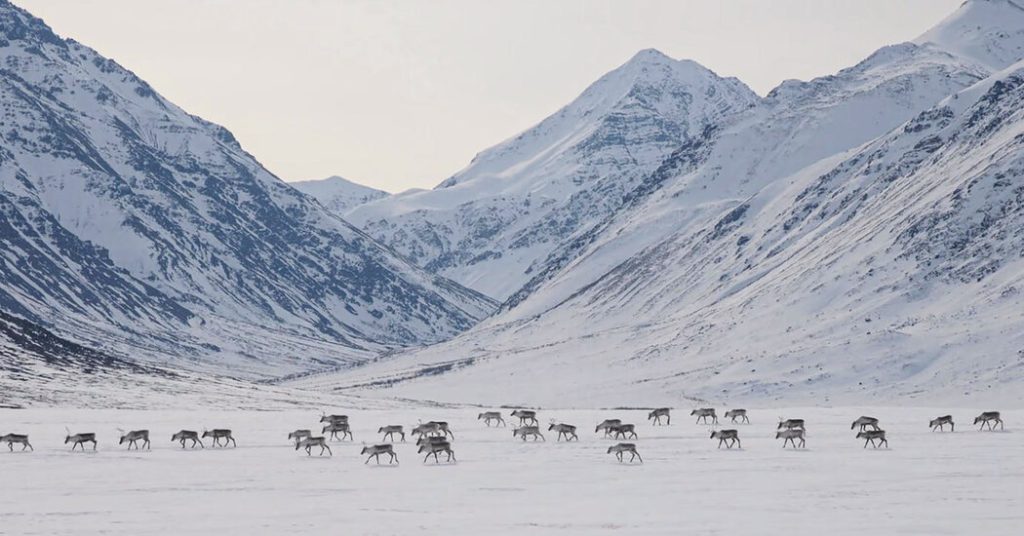The Biden administration has recently expanded federal protections for Alaskan wilderness, blocking oil, gas, and mining operations in an effort to shield some of the most unspoiled land in the country. This includes denying a permit for an industrial road through the Gates of the Arctic National Park and Preserve and banning drilling in more than half of the National Petroleum Reserve-Alaska. These decisions, aimed at protecting the environment and Indigenous rights, are expected to face challenges from industry and Alaska’s elected leaders.
President Biden framed these moves as part of his administration’s broader effort to address the climate crisis and conserve natural landscapes. This follows a series of initiatives to reduce emissions, restrict toxic chemicals, and expand national monuments. The decision to protect Alaskan lands comes as a way to make up for a controversial approval of the Willow oil drilling project last year. The administration aims to take ambitious action to combat climate change and safeguard valuable ecosystems for future generations.
The Interior Department’s decision to block the construction of a 211-mile industrial road through the Brooks Range has been praised by conservationists and tribal leaders, citing the protection of wildlife and natural habitats as a significant victory. However, opposition from Alaskan politicians, such as Senator Dan Sullivan and Representative Mary Peltola, reflects the economic concerns tied to the state’s reliance on oil, gas, and mining revenues. The decision is likely to spark debate about the balance between conservation efforts and economic interests in Alaska.
Further north, the Interior Department has withdrawn 13 million acres of Arctic tundra from future oil and gas drilling in the National Petroleum Reserve-Alaska, safeguarding parts of this pristine wilderness from industrial development. While this move could have implications for national energy security and state revenues, it aligns with the administration’s goal of protecting critical wildlife habitats and addressing climate change. Republican leaders have criticized the decision, arguing that it undermines America’s energy independence.
The rule to protect the National Petroleum Reserve-Alaska reflects a broader rift among Alaska Natives on the future of fossil fuels in the Arctic. The region faces increasingly severe impacts from climate change while remaining dependent on the oil and gas industry for jobs and revenues. The decision presents a challenge in balancing environmental conservation with economic interests, highlighting the complexities of transitioning to a more sustainable energy future in the face of climate change.
Overall, the Biden administration’s actions in Alaska signal a commitment to conservation, climate protection, and Indigenous rights. By expanding federal protections on millions of acres of land, the administration aims to safeguard valuable ecosystems, wildlife habitats, and traditional ways of life for Alaska Native communities. While facing opposition from industry and certain political leaders, these decisions underscore the administration’s pledge to address the urgent threats of climate change and prioritize the well-being of the environment and future generations.


